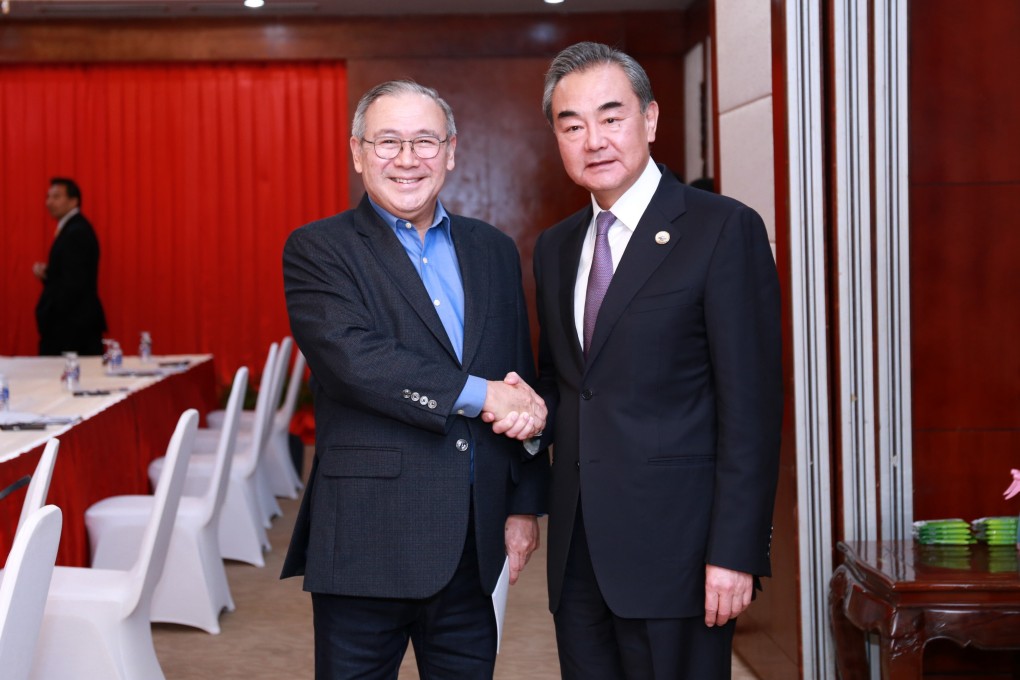China is not interested in competing for world leadership, foreign minister says
- Wang Yi made the comments during a meeting with his Philippine counterpart Teodoro Locsin, during which he said the two countries should be ‘good friends forever’
- Meeting is latest stage in diplomatic drive in Southeast Asia, where Beijing’s South China Sea claims are a continued source of tension

China has no desire to compete for the world’s leadership, the country’s foreign minister has said, as Beijing steps up a charm offensive to win over its Southeast Asian neighbours.
Wang Yi made the comments during the visit of his Philippine counterpart Teodoro Locsin, and said the two countries should be “good friends forever”.
Without naming the US, Wang said China was not trying to overtake other countries, saying: “We don‘t have the willingness to compete with other countries for leadership but are focusing our efforts on dealing with our own business.”
“China is seeking a development path that is completely different from the one with traditional powers of the West,” Wang told Locsin, according to a foreign ministry statement. “Our rights of development should not be deprived nor disrupted by other forces.”
Wang also used Saturday’s meeting in Tenchong, in the southwestern province of Yunnan, to say the two sides should continue to work to resolve their long-running territorial dispute in the South China Sea – a potential flashpoint in the rivalry between China and the US.